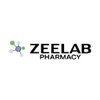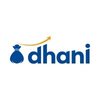

Emcure Pharmaceuticals




Emcure Pharmaceuticals Pharmacist Interview Questions and Answers
Q1. What is the meaning of PV in pharmacovigilance?
PV in pharmacovigilance stands for Pharmacovigilance.
PV stands for Pharmacovigilance, which is the science and activities relating to the detection, assessment, understanding, and prevention of adverse effects or any other drug-related problems.
Pharmacovigilance is essential for monitoring the safety of medicines and reducing the risks associated with their use.
PV involves collecting, monitoring, researching, assessing, and evaluating information from healthcare providers and...read more

Q2. What are the benefits of pharmacovigilance?
Pharmacovigilance helps in monitoring and evaluating the safety of medications to ensure patient safety.
Detecting and assessing adverse drug reactions
Preventing medication errors
Improving patient safety and healthcare outcomes
Identifying new drug interactions or side effects
Enhancing public health by providing valuable data on drug safety

Q3. What are 4 stages of pharmacovigilance?
The 4 stages of pharmacovigilance are signal detection, signal validation, signal analysis, and signal response.
Signal detection involves identifying potential safety concerns through various sources such as spontaneous reports, clinical trials, and literature reviews.
Signal validation is the process of confirming the existence of a safety signal and assessing its clinical relevance.
Signal analysis involves evaluating the data to determine the severity and frequency of the ad...read more

Q4. What is an adverse drug reactions?
Adverse drug reactions are unexpected or harmful reactions to medications, which can range from mild to severe.
Adverse drug reactions can occur with any medication, including over-the-counter drugs, prescription medications, and herbal supplements.
Symptoms of adverse drug reactions can vary and may include rash, nausea, vomiting, dizziness, or more severe reactions like anaphylaxis.
Adverse drug reactions can be caused by various factors such as individual differences in metab...read more

Q5. What are the types of pharmacovigilance?
Pharmacovigilance includes spontaneous reporting, intensive monitoring, cohort event monitoring, and electronic health records.
Spontaneous reporting: Healthcare professionals and patients report adverse drug reactions voluntarily.
Intensive monitoring: In-depth monitoring of specific drugs or patient populations.
Cohort event monitoring: Monitoring a group of patients prescribed a specific drug.
Electronic health records: Using electronic health records to identify potential adv...read more

Q6. Why is the drug safety is important?
Drug safety is important to prevent harm, ensure effectiveness, and maintain public trust in medications.
Prevents harm to patients by minimizing adverse effects and interactions
Ensures effectiveness by monitoring for efficacy and proper dosing
Maintains public trust in medications and healthcare providers
Examples: FDA drug recalls, medication errors, adverse drug reactions





Interview Process at Emcure Pharmaceuticals Pharmacist

Top Pharmacist Interview Questions from Similar Companies









Reviews
Interviews
Salaries
Users/Month












